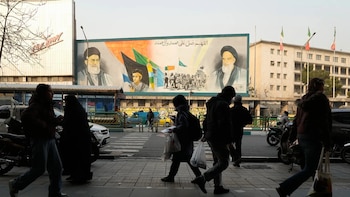
(Bloomberg) -- The Bank of Korea is likely to keep its record-low interest rate on hold Friday as it increasingly focuses on guarding against risks from rising debt and asset prices.
Governor Lee Ju-yeol and the board will hold the seven-day repurchase rate at 0.5% in their first policy decision this year, according to all 22 economists surveyed by Bloomberg. A separate poll sees the bank standing pat on rates all year after cutting them by 75 basis points in 2020 to fight the pandemic.
The BOK is engaged in a balancing act, seeking to support the recovery while trying to avoid a further buildup of financial risks that might come with even cheaper borrowing costs. Governor Lee has pledged to keep policy accommodative, but has also warned against vulnerabilities in the financial system that could be exposed as the economy limps forward.
“The hurdle to a rate cut is high given rising concerns about financial stability risks, particularly high household debt,” said Krystal Tan, an economist at Australia & New Zealand Banking Group. “The policy response will come from the fiscal side, with the government announcing a support package.”
The BOK expects the economy to return to expansion this year, growing around 3%. But the recovery is likely to be unbalanced, with exports leading while domestic demand lags. With the coronavirus still spreading and tight restrictions in place, Korea suffered its worst job losses since 1999 in December and the government expects the difficulties to persist through February.
South Korea’s Jobless Rate Hits 10-Year High as Virus Surges
While such weakness may call for a further easing of monetary policy, rising indebtedness among households and soaring home prices are likely to tie the central bank’s hands.
BOK’s Lee said in a speech to financial institutions last week that “even a small shock could rattle markets when debt levels are high and there’s an emerging gap between market expectations and economic reality.”
Lee will brief reporters at 11:20 a.m. in Seoul on Friday, following the decision about 90 minutes before then.
BOK Frets Over Uneven Recovery as South Korea Waits for Vaccine
Investors will also be keen to know whether the BOK intends to buy more government bonds as fiscal spending is ramped up. The bank has been purchasing bonds on an ad hoc basis to tamp down yields, but not at the scale of quantitative easing conducted by other central banks.
“While keeping as ambiguous as it can be about adjusting interest rates for now, the BOK is likely to drop a comment or two warning against overheating in financial markets,” said An Young-jin, an economist at SK Securities.
Últimas Noticias
Debanhi Escobar: they secured the motel where she was found lifeless in a cistern
Members of the Specialized Prosecutor's Office in Nuevo León secured the Nueva Castilla Motel as part of the investigations into the case

The oldest person in the world died at the age of 119
Kane Tanaka lived in Japan. She was born six months earlier than George Orwell, the same year that the Wright brothers first flew, and Marie Curie became the first woman to win a Nobel Prize

Macabre find in CDMX: they left a body bagged and tied in a taxi
The body was left in the back seats of the car. It was covered with black bags and tied with industrial tape
The eagles of America will face Manchester City in a duel of legends. Here are the details
The top Mexican football champion will play a match with Pep Guardiola's squad in the Lone Star Cup

Why is it good to bring dogs out to know the world when they are puppies
A so-called protection against the spread of diseases threatens the integral development of dogs



